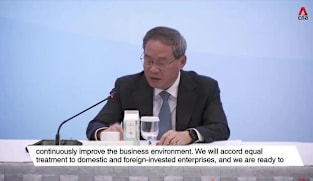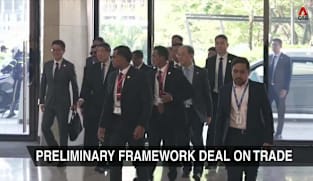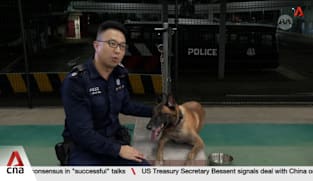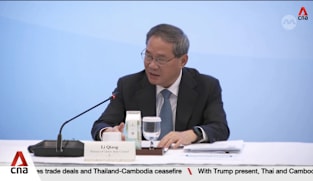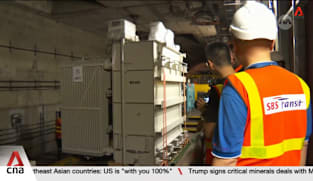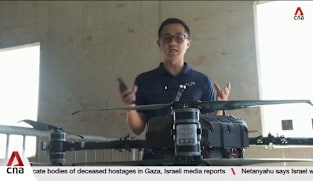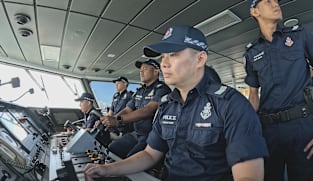Committee of Supply 2024 debate, Day 2: Heng Chee How on optimising contributions and taking good care of every NSman
Given Singapore’s low fertility rates, declining cohort sizes and an increasingly demanding mission, the Singapore Armed Forces (SAF) must continue to optimise the contributions of every national serviceman (NSman), said Senior Minister of State for Defence Heng Chee How in Parliament on Thursday (Feb 29). The SAF is doing so by reviewing medical criteria and matching these to the physical requirements of jobs to maximise the effective deployment of full-time NSmen. It is also redesigning job roles and assets, as well as tapping on NSmen’s skills and knowledge. One way is through the Work-Learn schemes. There are eight of them now, with about 520 enrolled since 2018. The SAF is now working with Singapore Polytechnic and Republic Polytechnic to introduce new schemes for final-year diploma students to fulfil their internship requirements and enlist concurrently. Students taking cybersecurity or aerospace electronics courses with Singapore Polytechnic or electrical and electronic engineering or IT courses with Republic Polytechnic are eligible. Those selected will serve for three to five years through a combination of full-time NS and regular service as cyber specialists or through full regular service as airforce engineers or naval warfare system experts. Mr Heng said the scheme will be expanded to other polytechnics and vocations in due course. Turning to safety in training, Mr Heng told the House that the SAF is using technology to improve performance. Since April 2023, all SAF recruits have been issued wearables and heart rate zone-based training has been incorporated into their physical training. The SAF has also made good progress in developing a next-generation digital safety information system. All units actively use the SafeGuardian app to submit near-misses and incident reports. Updating the House on the new Central Manpower Base, Mr Heng said it will be an integrated service location for NS-related administration. It will be home to the SAF’s second regional health hub. Over the next decade, the SAF will be establishing up to four more regional health hubs. The third one will be located at Dieppe Barracks to serve the north and will house the SAF’s first sports and exercise medicine centre. Mr Heng stressed that NS remains the cornerstone in safeguarding Singapore’s security, sovereignty and way of life. “We must continue to do our utmost to strengthen the NS system, to make full use of our NSFs’ and NSmen’s talents and skills, and to appreciate their valuable contributions. We must take good care of them,” he said.
Given Singapore’s low fertility rates, declining cohort sizes and an increasingly demanding mission, the Singapore Armed Forces (SAF) must continue to optimise the contributions of every national serviceman (NSman), said Senior Minister of State for Defence Heng Chee How in Parliament on Thursday (Feb 29). The SAF is doing so by reviewing medical criteria and matching these to the physical requirements of jobs to maximise the effective deployment of full-time NSmen. It is also redesigning job roles and assets, as well as tapping on NSmen’s skills and knowledge. One way is through the Work-Learn schemes. There are eight of them now, with about 520 enrolled since 2018. The SAF is now working with Singapore Polytechnic and Republic Polytechnic to introduce new schemes for final-year diploma students to fulfil their internship requirements and enlist concurrently. Students taking cybersecurity or aerospace electronics courses with Singapore Polytechnic or electrical and electronic engineering or IT courses with Republic Polytechnic are eligible. Those selected will serve for three to five years through a combination of full-time NS and regular service as cyber specialists or through full regular service as airforce engineers or naval warfare system experts. Mr Heng said the scheme will be expanded to other polytechnics and vocations in due course. Turning to safety in training, Mr Heng told the House that the SAF is using technology to improve performance. Since April 2023, all SAF recruits have been issued wearables and heart rate zone-based training has been incorporated into their physical training. The SAF has also made good progress in developing a next-generation digital safety information system. All units actively use the SafeGuardian app to submit near-misses and incident reports. Updating the House on the new Central Manpower Base, Mr Heng said it will be an integrated service location for NS-related administration. It will be home to the SAF’s second regional health hub. Over the next decade, the SAF will be establishing up to four more regional health hubs. The third one will be located at Dieppe Barracks to serve the north and will house the SAF’s first sports and exercise medicine centre. Mr Heng stressed that NS remains the cornerstone in safeguarding Singapore’s security, sovereignty and way of life. “We must continue to do our utmost to strengthen the NS system, to make full use of our NSFs’ and NSmen’s talents and skills, and to appreciate their valuable contributions. We must take good care of them,” he said.









